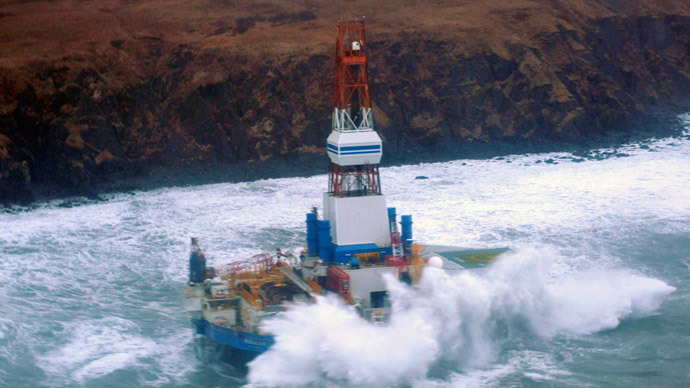Alaska’s budget sinks as oil continues dramatic fall

The state of Alaska is one of the hardest hit in the US by the slump in oil prices, as 87 percent of its budget is sourced from the development of mineral resources. The state's budget deficit is expected to reach $3.5 billion in 2015.
The cost of a barrel of oil in Alaska has decreased by more than a half: a year ago it was $107, and now the price has fallen to below $50. The production of crude oil in the state has decreased by 75 percent over the past 25 years.
READ MORE: Oil jumps after IEA hints at ‘price recovery’ and OPEC slowdown
In 2015 the average output from the state will be around 510,000 barrels per day, and the revenue from production taxes will be reduced by 80 percent, according to AP.
Nevertheless, oil will continue to be Alaska’s “economic lifeblood” and local authorities are studying various ways to deal with the budget deficit, which could reach $3.5 billion in 2015. They are considering cutting the budget, bank loans, introducing a sales tax and spending the Alaska Permanent Fund.
The fund was created using previous oil revenues and is worth $7.5 billion. It is used to pay additional cash assistance or, say, dividends based on the five-year average of the realized earnings of Alaska’s oil wealth account, to practically all Alaska citizens.
In the meantime, Governor Bill Walker has suspended new contracts on five major infrastructure projects, including the modernization of the spaceport on Kodiak Island.
American analysts believe a further fall in oil prices could hit the US economy as a whole, for other US states, including Wyoming, New Mexico and Louisiana, also face losses as their budgets are dependent on oil revenues.
Shale production in North Dakota and Texas is at risk after WBH Energy LP became the first US shale oil producing company to announce bankruptcy earlier in January.
READ MORE: $200 bn in debt looms over American oil and gas
Experts warn that further price cuts will make fracking unprofitable and lead to bankruptcies among small independent businesses. Even large companies such as BP, Apache and Halliburton have already announced layoffs in January.












